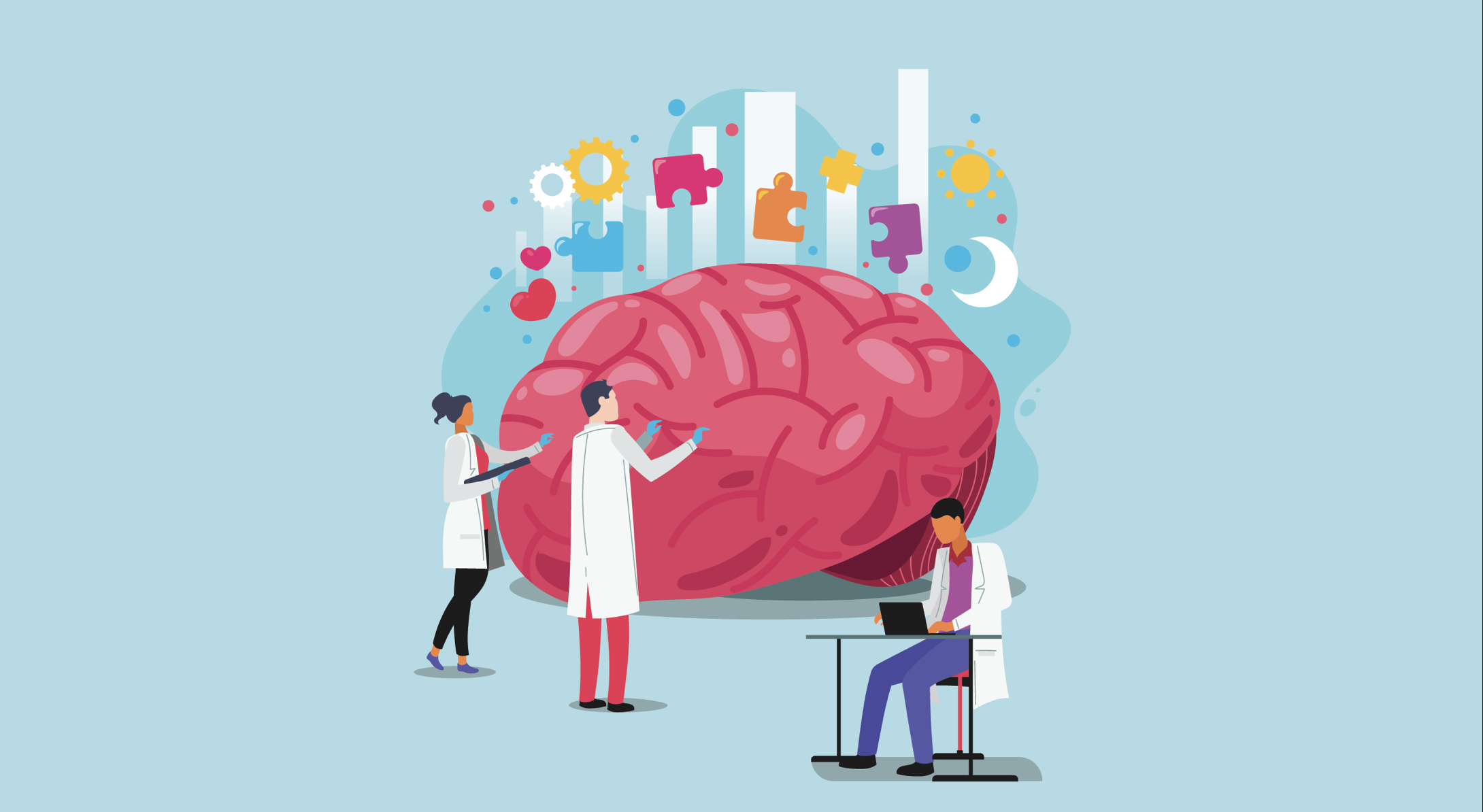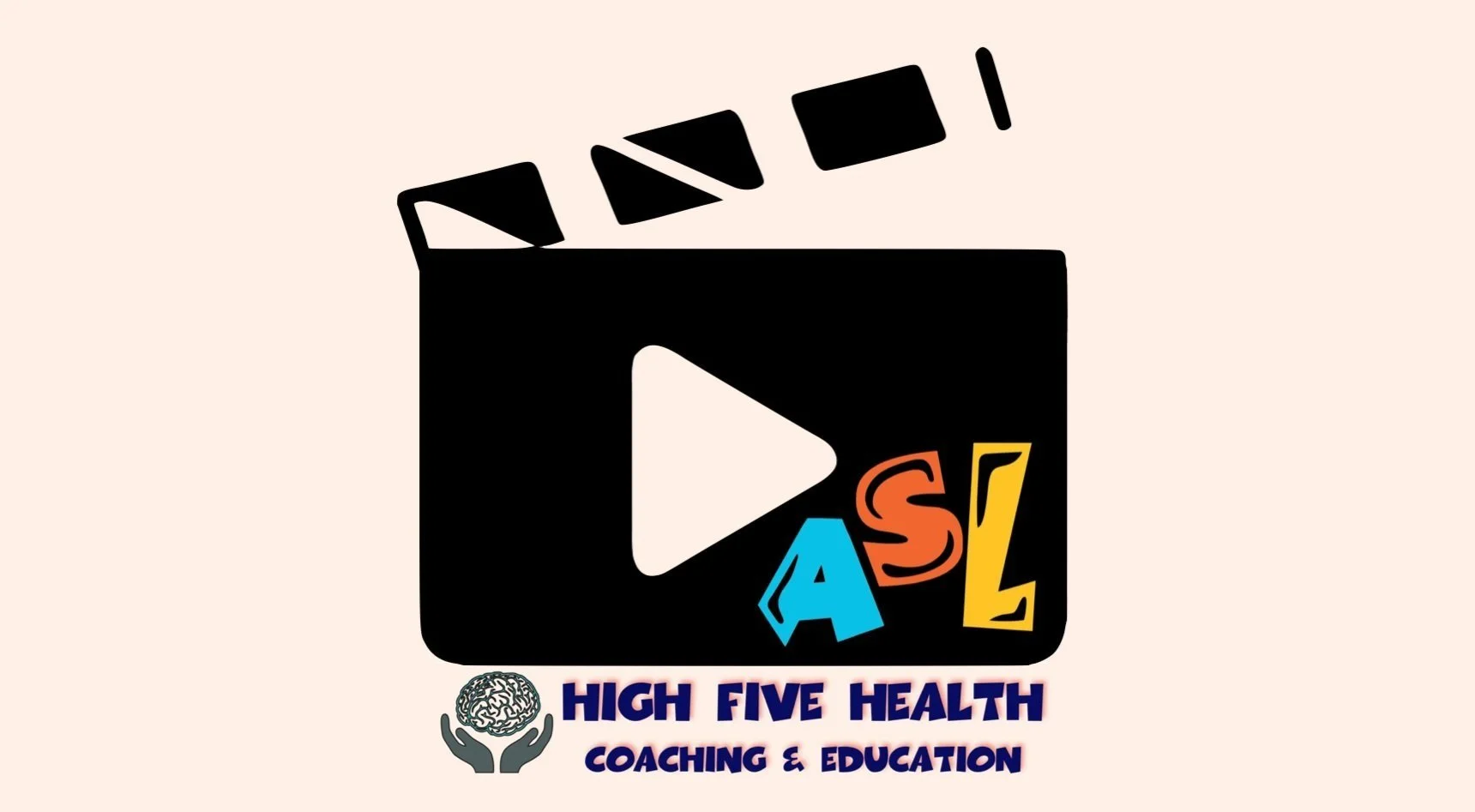Don’t leave to chance what you have the power to change.

Improving Brain Health,
One Bite at a Time
This page is regularly updated with highlights from recent research, explained in easy-to-understand language. Below, you’ll find bite-sized updates on each of the five key areas of brain health: nutrition, movement, sleep, stress, and social connections. Click on the title to access the resource directly.
#movemore #eatrealfood #learnmore
#stressless #sleepmore #lovemore
#fortheloveofyourbrain ⚡️🧠⚡️
top
Poor Sleep Linked to Accelerated Brain Aging
A study published in Neurology shows that poor sleep quality in early middle age—often due to stress, family duties, or menopause—may speed up brain shrinkage linked to dementia. For 15 years, researchers tracked 589 adults starting around age 40 and found that those with more sleep problems had brains that appeared older. Participants with persistent sleep issues over five years—like trouble falling asleep, staying asleep, or waking up early—showed signs of accelerated brain aging, even after adjusting for factors like age and health. People with moderate sleep problems had brains 1.6 years older, and those with severe issues had brains 2.6 years older compared to those who slept well.
The researchers stress the importance of improving sleep quality in middle age and suggest that addressing sleep problems early could help protect brain health and reduce the risk of cognitive decline and dementia.
#sleepmore #fortheloveofyourbrain ⚡️🧠⚡️
Crosstalk between fat tissue and muscle, brain, liver, and heart in obesity: cellular and molecular perspectives (pdf)
Obesity harms the brain in many ways, mostly through inflammation and disruption of brain function. When people are obese, their bodies experience chronic inflammation, which can damage brain cells and lead to cognitive decline and an increased risk of neurodegenerative diseases like Alzheimer's. High-fat diets, often linked to obesity, increase this inflammation, especially in the hippocampus, the part of the brain that controls memory and learning. Obesity also causes changes in brain chemicals, like leptin resistance, which messes up the brain’s ability to manage hunger and energy balance. This worsens brain health, making it harder to think and remember things. Obesity can also affect brain development in children, especially those born to obese mothers, leading to problems with nerve growth and brain function. Overall, obesity harms both the structure and function of the brain, making it harder to think clearly and remember things.
#fortheloveofyourbrain ⚡️🧠⚡️
Effects of Gut Health on Cognitive Functioning in Adults (pdf)
Communication goes both ways between your brain and gut. They’re so closely linked that if your gut isn’t healthy—often because of the Standard American Diet (SAD), bad sleep, or stress—it can hurt your mental and cognitive health, including memory and how fast you think. On the other hand, research shows that eating foods high in fiber, prebiotics, probiotics, and symbiotics can boost brain health. Also, interventions worth investigating include those that change your gut bacteria such as foods or supplements.
#eatrealfood #sleepmore #stressless #fortheloveofyourbrain ⚡️🧠⚡️
Insulin Resistance & Metabolic Syndrome: Risk Factors for Alzheimer’s Disease
Your metabolic health and brain health are closely connected. The studies in this literature review confirm that Metabolic Syndrome—defined by having three or more of these issues: extra belly fat, high triglycerides, low HDL cholesterol, high blood pressure, and high fasting blood sugar—is a risk factor for Alzheimer’s Disease. The longer someone has Metabolic Syndrome or related problems like diabetes, and the more their weight fluctuates, the higher their risk of developing dementia. On the bright side, older adults can lower their risk of Alzheimer’s by increasing their muscle mass.
#eatrealfood #movemore #fortheloveofyourbrain ⚡️🧠⚡️
Brain Exercises to Sharpen Memory & Improve Cognitive Function
People often ask what one thing they can do to boost their brain health. The truth is, it’s not just one thing that hurts or helps us. Keeping your brain healthy involves a few key areas: good nutrition, quality and quantity of movement and sleep, mental stimulation (increasing eustress and decreasing distress), and strong social connections. It can seem like a lot, but you can combine these areas to make it easier. For example, learning a new language or playing games like cards or chess can be both social and mentally stimulating.
Other activities that combine these benefits include dancing, making memory maps, learning to meditate, teaching others, solving math problems without a calculator, doing jigsaw puzzles, and expanding your vocabulary. It’s important to try different types of mental challenges to keep your brain engaged.
I’m not familiar with the coaching group mentioned in the article and I don’t endorse the promotion of their supplement, but I found the article useful and easy to understand. Feel free to take what’s helpful from it and ignore the rest.
#learnmore #lovemore #fortheloveofyourbrain ⚡️🧠⚡️
Being Sedentary Increases Your Risk of Dementia
Most Americans sit for over 9.5 hours a day, which is close to the point where the risk of dementia increases.
If you sit for 10 or more hours a day, you’re significantly raising your risk of developing dementia. The more time you spend inactive beyond that, the higher your risk. It’s not as important how the inactivity is spread out throughout the day, as long as the total time spent sitting adds up. However, if you sit for less than 10 hours a day, your risk doesn’t go up.
#movemore #fortheloveofyourbrain ⚡️🧠⚡️
Cognitive Benefits of Gardening
Viewing natural settings, like parks or gardens, is good for your mood and health. If you enjoy music, listening to your favorite tunes while you're in nature can be even more beneficial. Being around green spaces can help lower your cortisol levels.
Gardening is great for your brain because it involves complex thinking and can even boost brain health by creating new neurons and helping your brain adapt and form new connections. This can improve your memory, focus, and attention, whether or not you have noticeable memory issues.
When you talk with others about your gardening or work with them on projects, you can combine multiple brain health pillars and also get the benefits of social connections, or when you grow fresh produce you can eat, you can benefit from brain-healthy nutrition, too!
Nurturing your green thumb is one of many ways to truly reap what you sow for your long-term brain health.
#stressless #lovemore #eatrealfood #fortheloveofyourbrain ⚡️🧠⚡️
Viewing Water Has Health Benefits
Research from UC Davis found that looking at water can help lower your heart rate and blood pressure, and make you feel more relaxed. This benefit is noticeable even with swimming pools, but it’s stronger with larger, natural bodies of water. However, these effects are temporary, so for lasting benefits, try to include time looking at water in your regular routine.
#stressless #fortheloveofyourbrain ⚡️🧠⚡️
Enter your email to get the free Brain Health Inventory. This form helps you keep track of your brain health every week and make the most of your cognitive health all year long!
We respect your privacy and
will not share your email.


